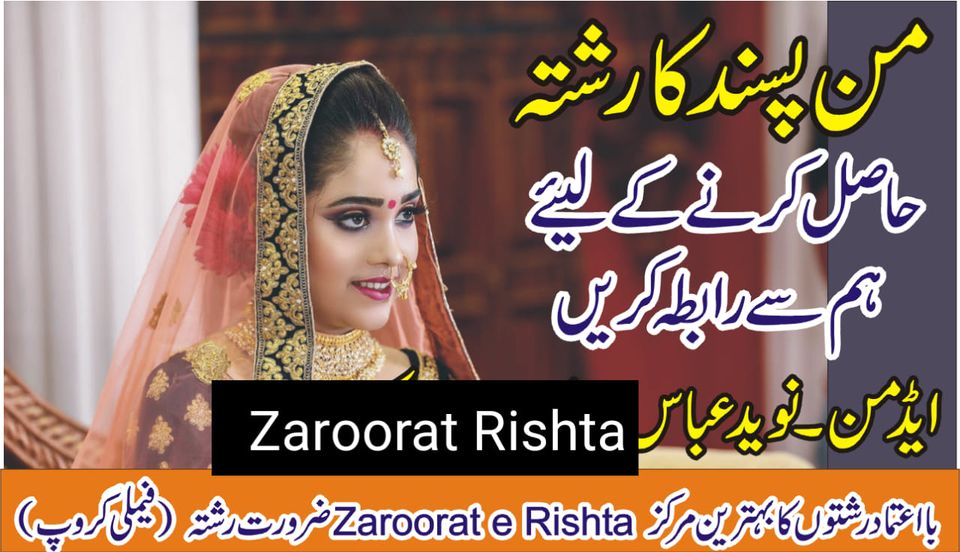Marriage is a significant milestone in one’s life, and finding the right life partner is crucial for a successful and fulfilling union. In the context of South Asian culture, the concept of “Zrorat e Rishta” holds immense importance. “Zrorat e Rishta” translates to “the need for a relationship” and refers to the process of searching for a suitable match for marriage.
The Traditional Approach to “Zrorat e Rishta”
In traditional South Asian societies, the responsibility of finding a suitable partner often falls on the parents or family members. They take on the task of searching for potential matches within their social circle, community, or through matrimonial services. This approach emphasizes the compatibility of families, social status, and cultural values.
Parents and family members consider various factors when looking for a “Zrorat e Rishta” for their son or daughter. These factors may include age, education, profession, family background, and physical appearance. The aim is to find a partner who meets the societal expectations and complements the individual’s personality and aspirations.
The Modern Perspective on “Zrorat e Rishta”
In recent years, the concept of “Zrorat e Rishta” has evolved to adapt to the changing dynamics of society. Individuals now have more autonomy and freedom to participate actively in the search for their life partner. The traditional approach is still prevalent, but there is an increasing trend towards individuals taking charge of their own “Zrorat e Rishta” process.
Modern technology, especially online matrimonial platforms and dating apps, has revolutionized the way people search for potential partners. These platforms provide a convenient and efficient way to connect with a wider pool of individuals who meet their specific criteria. They allow individuals to filter potential matches based on various factors such as age, education, interests, and values.
The Significance of “Zrorat e Rishta” in South Asian Culture
The concept of “Zrorat e Rishta” is deeply rooted in South Asian culture and holds great significance for individuals and their families. It is seen as a means to preserve cultural traditions, maintain family honor, and ensure a harmonious union.
For many individuals, finding a suitable life partner through “Zrorat e Rishta” is not just about personal happiness but also about fulfilling societal expectations. It is a way to demonstrate their commitment to upholding cultural values, traditions, and social norms.
Furthermore, “Zrorat e Rishta” is not just limited to finding a partner for marriage; it also encompasses the process of building a strong foundation for a lifelong relationship. Compatibility in terms of values, beliefs, and goals plays a vital role in ensuring a successful and fulfilling marriage.
The Role of Communication and Compatibility in “Zrorat e Rishta”
While the traditional approach to “Zrorat e Rishta” focuses on external factors such as family background and social status, the modern perspective emphasizes the importance of communication and compatibility between individuals.
Effective communication is essential for understanding each other’s needs, expectations, and aspirations. It allows individuals to build a strong emotional connection and resolve conflicts in a healthy manner. Compatibility, on the other hand, ensures that both partners share similar values, goals, and interests, which are crucial for long-term happiness and harmony.
As individuals take a more active role in their “Zrorat e Rishta” process, they are increasingly prioritizing qualities such as mutual respect, emotional intelligence, and shared values. These factors contribute to a deeper and more meaningful connection between partners, leading to a stronger and more fulfilling relationship.
In Conclusion
The concept of “Zrorat e Rishta” holds immense importance in South Asian culture. It is a process that involves finding a suitable life partner who not only meets societal expectations but also shares compatibility and a strong emotional connection. As society evolves, individuals are taking a more active role in their “Zrorat e Rishta” process, utilizing modern technology to find their perfect match. Regardless of the approach taken, effective communication and compatibility remain key factors in building a successful and fulfilling marriage.
